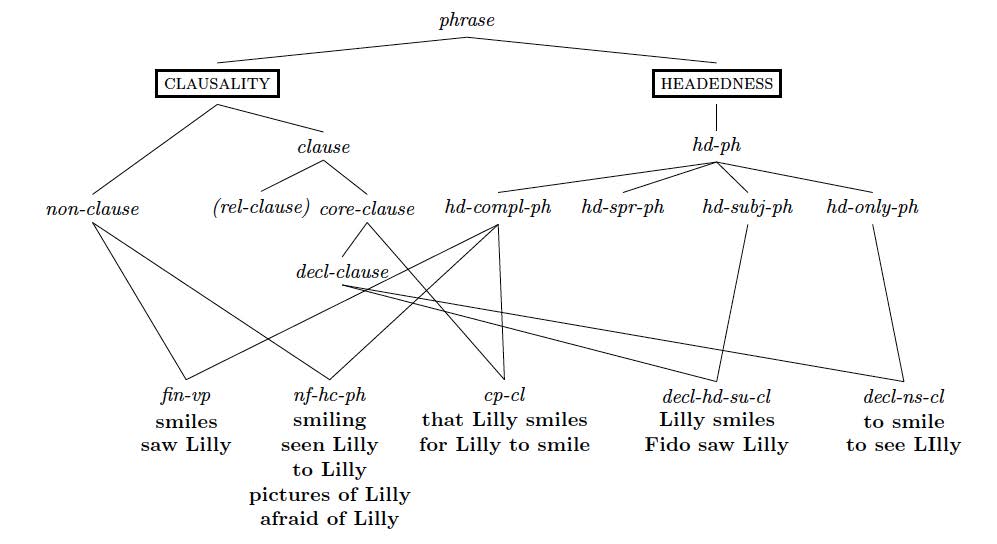Constraint-based Syntax 2: Week 3: Difference between revisions
Jump to navigation
Jump to search
| Line 143: | Line 143: | ||
# comp_seeker word | # comp_seeker word | ||
<br> | <br> | ||
Now parse the following expressions in our [http://141.2.159.95:7002/wt/ Regular Grammar] to see which information authentic lexical entries contribute to a phrase: | Now parse the following expressions in our [http://141.2.159.95:7002/wt/ Regular Online Grammar] to see which information authentic lexical entries contribute to a phrase: | ||
1. Real "subject seekers": | 1. Real "subject seekers": | ||
| Line 160: | Line 160: | ||
* puts the books on the shelf | * puts the books on the shelf | ||
After you have tried the examples above, think up 3 more examples for each of the 3 types | After you have tried the examples above, think up 3 more examples for each of the 3 types and try them out in the regular online grammar. | ||
Revision as of 19:43, 2 May 2017
The Phrase Hierarchy
Constraints on the Phrasal Types
Illustration of Constraint Inheritance
Since the type type{fin-vp} has several phrasal supertypes, a feature structure of that type must satisfy the following constraint:
Exercises
Parse the following expressions in the Schematic Grammar to test the constraints associated with the type phrase and its subtypes:
- word subj_seeker
- word spr_seeker
- comp_seeker word
Now parse the following expressions in our Regular Online Grammar to see which information authentic lexical entries contribute to a phrase:
1. Real "subject seekers":
- dances
- likes Lilly
2. Real "specifier seekers":
- cat
- picture of Lilly
3. Real "complement seekers":
- likes Lilly
- puts the books on the shelf
After you have tried the examples above, think up 3 more examples for each of the 3 types and try them out in the regular online grammar.
Navigation:











